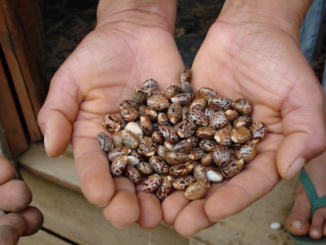
Under this law, egg-laying hens must be kept in so-called “enriched” or “furnished” cages, with “extra space to nest, scratch and roost.” Under the directive, enriched cages must be at least 45 cm high and must provide each hen with at least 750 cm² of space; 600 cm² of this must be “usable area” – the other 150 cm² is for a nest-box.
On 26 January the Commission sent “letters of formal notice” to 13 Member States – Belgium, Bulgaria, Cyprus, France, Greece, Italy, Hungary, Latvia, The Netherlands, Poland, Portugal, Romania and Spain – giving them two months in which to justify their non-compliance, or face further legal sanctions. Even the UK, which was boasting about full compliance at the beginning of the year, had to report that some farms had not fully converted to the new systems. Those farms are expected to have been upgraded or to have closed this month. The EU officials said the new strategy reflected real concern that so many farmers had failed to meet the deadline for the new rules on eggs, 12 years after they were proposed.
In mid-February, the Bulgarian Food Safety Agency seized 248,000 eggs from Poland in ‘Kaufland’, a German hypermarket chain which is part of the same group as ‘Lidl’ and ‘Handelshof’. Half of them held the respective stamps, while the other half did not. The ones that did do came from farms which do not conform to the EU requirements. It was the second time in three weeks that Bulgarian veterinary authorities had decided to withdraw Polish eggs from sale. As a consequence Agriculture Minister Miroslav Naydenov decided to write a letter to his counterparts in the other EU Member States that have still not complied with the Council directive claiming that only certified eggs entered the Bulgarian market. After the scandal ‘Kaufland Bulgaria’ had stated that all of the eggs which lack of proper labels are being pulled from shelves and being destroyed.
The repercussions of half of the European states not complying with the rules has already been seen, with the unilateral move from the Czech Republic in January to ban the import of eggs from Poland.
The Commission has not officially given a response to such a move, though Health and Consumer Protection Commissioner John Dalli has previously indicated that such unilateral action will not be tolerated on the basis of the need to protect the internal market.
Last January Commissioner Dalli went on to promise that in the field of animal welfare there will be more flexibility, more intergovernmental co-operation, more public education and a move towards fuller labelling – including an obligation to record whether an animal has been fully stunned before slaughter, which it may not have been in kosher and halal abattoirs. He also promised he and his colleagues would be “enhancing tools to strengthen Member State compliance with legal requirements”.
In the UK, one food processor, Premier Foods, has managed to ensure that it is not importing egg products from producers, who are not complying with the regulations, by switching its production to purely free–range eggs.




